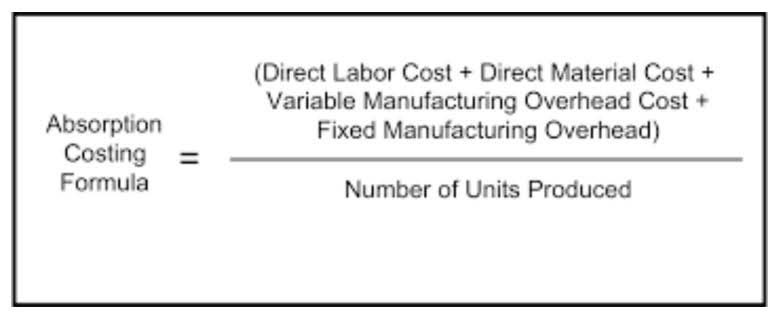
Oracle Netsuite is a comprehensive suite that offers advanced features for financial management, inventory management, and more. It’s designed to streamline operations, improve insights, and drive growth for larger businesses. Discover how outsourcing bookkeeping services can streamline your finances and boost business growth.
How Much Does It Cost to Outsource Bookkeeping?

At Outsourcing Business Solutions (OBS), we guarantee precise, timely, and effective accounting services. Our comprehensive solutions meet diverse needs, ensuring complete satisfaction. We prioritize data security through non-disclosure and non-compete agreements, along with robust security measures.

800Accountant: Best for small-business taxes
Having trained eyes on your finances at all times can bring considerable peace of mind, as well as the confidence needed to make intelligent financial decisions. Our team of senior accountants and controllers will help you set up a revenue recognition schedule aligned with bookkeeping firms your business’s operations. We’ll generate meaningful metrics and reports that give you real insight into your profitability and costs. If you’re planning to raise capital, we can handle your equity accounting, ensure financials are ready for audit, and achieve GAAP compliance. Outsourced bookkeeping is when businesses hire outside bookkeeping and accounting firms, freelancers, or other third parties to manage their financial records.
- Are you looking for help with payroll only, or do you need comprehensive financial management?
- Prices start at $500 a month for the Essential plan, which is geared towards startups that use cash-basis accounting.
- For the price you pay, you gain access to a team of financial experts, cutting-edge accounting software, and a service that is often available around the clock.
- Include the scope of work, performance metrics, communication protocols, and data security provisions.
- Providers can vary from independent contractors to huge and established firms.
Hire a Local Bookkeeper
Freshbooks has advanced tools, including accounting software that gives you 24/7 access to financial data. An external accountant will provide you with accurate and detailed financial reports, ensuring you stay competitive as your business grows. Outsourced bookkeeping works by delegating your business’s financial management tasks to external professionals or firms specializing in bookkeeping and accounting services. Choosing the right outsourced bookkeeping service involves evaluating factors such as the provider’s expertise, range of services, use of technology, and client testimonials.
Cost of Outsourcing Bookkeeping
- In the realm of finance, compliance with regulatory standards is not just a best practice; it’s a legal necessity.
- Sometimes cost can be a barrier to entry, even for solutions that specifically target clientele with tight budgets.
- When hunting for bookkeeping firms, go for those who give immediate and secure access to financial reports.
- Cost savings, expertise access, improved compliance, and time saved on non-core tasks.
- For a business owner, overseeing these tasks can take up an additional 5-10 hours per week.
- In-house bookkeeping departments often struggle with adaptability, as changes in business strategy can require time-consuming and costly adjustments to financial processes.
Although you must pay for their services, hiring outsourced accounting experts eliminates these additional costs, saving you money overall, especially helpful if you’re a small business. Hiring an outsourced accounting firm can provide you with insights and wisdom that you may not find elsewhere. When several professional accountants are working together in one office, they are often inspired to grow and learn in their own careers, staying up to date on the latest laws and regulations. They will also be able to speak with colleagues and ask for advice if difficult or unusual situations arise in their accounting tasks.
- List out your specific needs and identify any complex or high-volume tasks that are challenging for your team to handle internally.
- In a typical mid-sized company, an in-house bookkeeper might spend around hours a week on financial tasks, including transaction recording, payroll processing, and financial reporting.
- It also syncs with either QuickBooks Online or Netsuite (as opposed to syncing just with QuickBooks, like most virtual bookkeepers).
- Another benefit of outsourcing is that it frees you and your staff from labor-intensive bookkeeping duties.
- That way, you’ll protect your property and the reliability of your internal processes.
- Outsourced bookkeeping is when businesses hire outside bookkeeping and accounting firms, freelancers, or other third parties to manage their financial records.
When hunting for bookkeeping firms, go for those who give immediate and secure access to financial reports. They should operate their business in accounting software with which you are familiar. Offshore bookkeeper companies are located Accounting Periods and Methods in India and other countries, where it costs less to hire such service providers. This allows offshore bookkeepers to offer more affordable fees for bookkeeping.
Pricing

Outsourcing bookkeeping is cost-effective and will save your company money. Experienced bookkeepers are often better at finding overdue clients and cuts your company could make to increase overall profit. Plus, having an outsourced bookkeeper is more cost-efficient in the first place, since you’re not technically their employer. https://x.com/bookstimeinc While a certified public accountant (CPA) will provide insight and analysis of your financial data, bookkeepers will get into the nitty gritty of your day-to-day transactions.

Would you rather tackle accounting yourself instead of outsourcing it to a third party? Check out our list of the year’s best accounting software for small businesses to get started. With Bench’s Catch Up Bookkeeping services, a Bench bookkeeper will work through past months of disorganized bookkeeping to bring your accounts up to date. Second, freelancers are usually contracted workers who are hired to help balance your books, while firms are dedicated accounting companies that solely focus on that goal.
